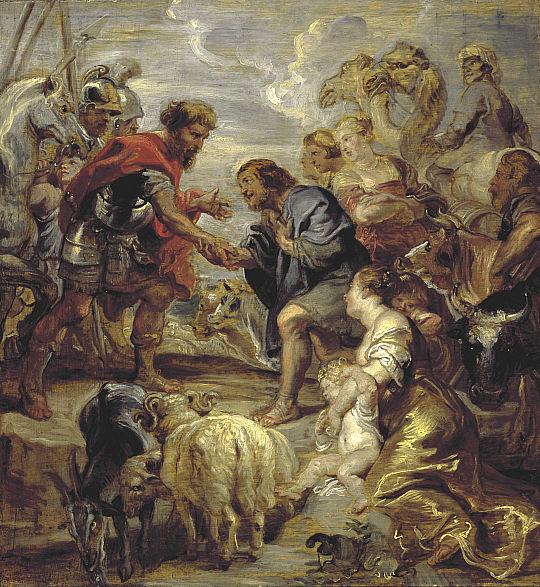
Tomorrow’s ‘Parashah’ (weekly Torah portion) is ‘Ekev’ (Hebrew for ‘follow’). This is the third ‘Parashah’ in the Book of Deuteronomy and can be found in Deuteronomy 7:12–11:25.
The Hebrew root A-K-V (ע-ק-ב) is one of the most intriguing roots in the Hebrew language. Its original meaning is a curved shape and over time has become associated with objects that have a round and curved shape, like in the following example from the Book of Isaiah:
“Every valley shall be lifted up, and every mountain and hill be made low; the UNEVEN GROUND shall become level, and the rough places a plain.” (Isaiah 40:4)
The original Hebrew for ‘uneven ground’ is ‘Akov’ (עקוב) and implies the curved shape of the ground. This is also the case with the Hebrew word for the ‘heel’ which is ‘Akev (עקב).’ It is called ‘Akev” because of the curved shape of the underside of the foot.
Many of you have probably noticed the resemblance of the sounds of the Hebrew words ‘Akev’ (‘heel’) and the Hebrew name Yakob{יעקב} (‘Jacob’). Well, now we can better understand the Hebrew meaning of Jacob’s name as mentioned in the Book of Genesis:
“Afterward his brother came out with his hand holding Esau’s HEEL, so his name was called Jacob.” (Genesis 25:26)
According to Hebrew logic, the heel (‘Akev’) is associated with the footprint and therefore called ‘Akeva’ (‘Akevot’ {עקבות} in plural) in Hebrew.
In popular Israeli culture (movies, books and even cartoons) in order to know where one went , all you need to do is follow one’s footprints or as we say in Hebrew ‘La-Akov’ (לעקוב)– which is ‘to follow,’ ‘to tail’ or ‘to track’.
From the tangible Hebrew objects ‘Akev’ and ‘Akevot’ (‘heel’ and ‘footprints’ respectively) is derived the abstract form ‘Beikvot’ (בעקבות) which means ‘in someone’s footsteps.’
The name of our weekly Torah portion – ‘Ekev’ – is a short form of the Hebrew preposition ‘Beikvot’ and means ‘follow.’
